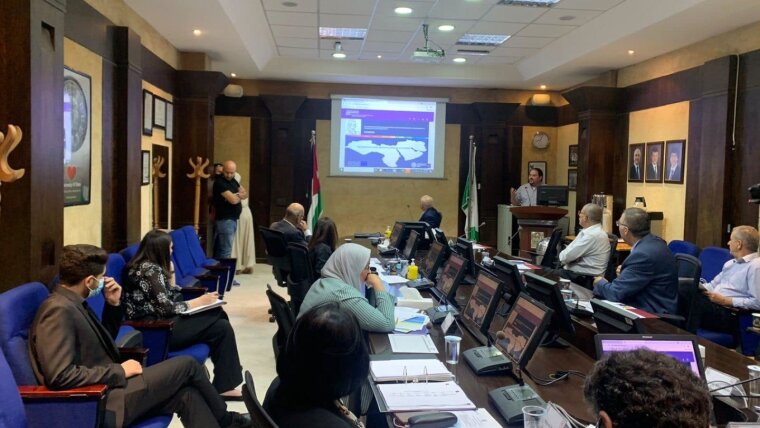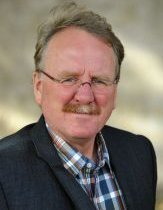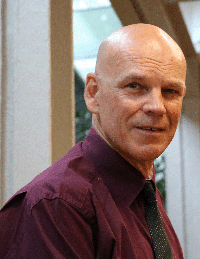
-
Prof.Dr. Martin Leiner
Directors_Prof. Dr. Martin Leiner
Image: Directors_Prof. Dr. Martin LeinerProf. Dr. Martin Leiner.
- Director of the Jena Center for Reconciliation studies.
- Director of the Scientific Board of the AARMENA
- holds a Chair in Systematic Theology / Ethics at the Faculty of Theology.
- email: martin.leiner@uni-jena.de
-
Univ.-Prof. Dr. Michael Wermke
Michael Wermke, Univ.-Prof. Dr.
Image: Michael Wermke, Univ.-Prof. Dr.Michael Wermke, Univ.-Prof. Dr Professor of Religious Education
Faculty of Theology, Chair of Religious Education,
Room 203
Fürstengraben 6, 07743 JenaPhone 03641 9-42770
michael.wermke@uni-jena.de -
Prof.Dr. Wolfgang Dietrich
wolfgang-dietrich
Image: wolfgang-dietrichGuest Professor: Professor
Dr.Wolfgang Dietrich
- Holds the UNESCO CHAIR FOR PEACE.
- Professor of Peace Studies
- https://www.uibk.ac.at/peacestudies/dietrich/index.html.enExternal link
- E-mail: wolfgang.dietrich@uibk.ac.at
- Phone: 0043 69912290895
-
Dr.Phil. Iyad Muhsen AlDajani
Dr. iyad aldajani
Image: Dr. iyad aldajaniExecutive & Research Director
- Director of the Doctoral School: Reconciliation, Conflict Transformation ane Peace Studies
- Post-Doc Research Fellow / Applied Ethics, Faculty of Theology / Department of Systematic Theology and Ethics;
- Project Manager for Erasmus Plus Project;
- Research in Applied Ethics in Digital Humanities using Aritifical Intelgence and machine learning. (AI Ethics in Reconciliatoin and Peace Studies).
- ORCID digital profile: https://orcid.org/0000-0002-1489-2551External link
contents
Reconciliation & Peace Studies (from Theory to Practices)
- Start: October 8th, 2021.
- End: January 28th , 2022.
- Room: Online
Module: BA RW3; DB ST; The B8; The B9; The B9.1; The KG / ST1; The L8; The L8.1
This seminar will discuss the history and philosophy of reconciliation and peace studies as trans-disciplinary endeavor, their research methods and didactics as well as some tools for applied work. The approach of the research seminar is theoretical-practical. Therefore the doctoral researchers will both hear about, discuss and practically apply the offered contents.
Reconciliation and Peace Studies are neighboring but not identic (trans) disciplines. Therefore they share many methodological approaches but each of them is also defined by particularities that have been developed in the history and the making of the academic discipline. Therefore this theoretical-practical research seminar will discuss the
- history and philosophical foundation of Reconciliation and Peace Studies as (trans-) discipline;
- didactical and curricular approaches to reconciliation and peace studies;
- methods and tools of applied reconciliation and peace work.
The first part of the seminar will be rather frontal presentation of some particularities that differentiate reconciliation and peace studies from neighboring disciplines - due to their history and philosophical foundation.
The second part will interactively explore didactic principles and ways of developing proper curricula in the field of reconciliation and peace studies.
The third part will connect these didactic and curricular principles with aspects of applied field work and hence reason how and why the educational goal requires specific training for the researcher and practitioner as his / her own principle tool.
The fourth part will introduce and apply cross readings as a specific (horizontal) research method of reconciliation and peace studies and apply it in the frame of moderated and structured debates on the current works of the participants.
In sum the seminar will discuss and contrast the methodological approaches as used in reconciliation and peace studies. It will highlight ethical aspects of such research in reconciliation and peace studies, and at least touch different concepts of reconciliation and peace research and conflict transformation that are meant to be relevant for the individual participants.
HISTORY AND PHILOSOPHICAL FOUNDATIONS OF RECONCILIATION AND PEACE STUDIES.
- Oct. 8, 14: 00-17: 00 Peace and Conflict Studies as a Trans-discipline;
- Oct. 15th, 14: 00-17: 00 Energetic, moral, modern, postmodern and transrational ways of wisdom, knowledge and scientific research;
- Oct 22, 14: 00-17: 00 Reconciliation Studies as a trans-discipline - the Hölderlin Perspective
(Prof. Leiner). - Oct. 29, 14: 00-17: 00 Applied Phronesis in Reconciliation Process: Theories and Examples
(Dr. AlDajani).
DIDACTIC AND CURRICULAR APPROACHES TO RECONCILIATION OF PEACE STUDIES.
- Nov 12, 14: 00-17: 00 The Ego, the Team and the Theme in Curriculum Development;
- Nov 19, 14: 00-17: 00 Approaches to Curricular Development in Reconciliation and Peace Studies.
- Nov 26, 14: 00-17: 00 Creating a Prototype of a Curriculum on Peace Studies (Simulation);
- Dec 3, 14: 00-17: 00 Creating a Prototype of a Curriculum in Reconciliation Studies (Simulation).
METHODS AND TOOLS OF APPLIED RECONCILIATION AND PEACE WORK (Prof. Leiner & Dr. ALDajani)
- Dec 10, 14: 00-17: 00 Hands on tools, Mixed-Methods research design using Nvivo for windows, and
- Jan 7. 1 4: 00-17: 00 Developing concept maps and movies on reconciliation and peace studies
Elicitive Conflict Mapping and CROSSREADINGS
- Jan 14, 14: 00-17: 00 Humanistic Psychology and Elicitive Conflict Mapping
- Jan 21: 14: 00-17: 00 Cross readings of participants' current work.
- Jan 28, 14: 00-17: 00 Cross readings of participants' current work.
Audience:
- Scholars in the field of Peace & reconciliation studies.
- D. candidates from the doctoral school AARMENA at Freidrich Schiller University
- Professors and staff participating in the Erasmus Plus Project - AARMENA
Bibliography:
Reconciliation References
- Iyad Muhsen Aldajani - Internet Communication Technologies for Reconciliation (ICT) for Reconciliation: Applied Phronesis in Internet Research Methodologies.
- AlDajani, I & Leiner M. (2019) Reconciliation in the Middle of the Isreal Palestinian conflict. Url: https://www.pij.org/articles/1975/reconciliation-in-the-middle-of-conflict-an-approach-to-the-israelipalestinianconflictExternal link .
- Martin Leiner: Thinking differently about Identity and Harmony - The Potential of Asian thinking for reconciliation. Is reconciliation a topic for East Asia? In: Phillip Tolliday / Maria Palme / Dong-Choon Kim / ed.), Asia-Pacific between Conflict and Reconciliation, Göttingen: Vandenhoeck & Ruprecht 2016, pp. 185, 186
- Martin Leiner: Justice and Reconciliation - opposition or cooperation? (Address in Medellin, March 2017)
- Martin Leiner: What is Reconciliation, and why is it needed? (February 2015)
- Francesco Ferrari: Peace as Ars Vivendi. Inventing Peace with Martin Buber (forthcoming.
- Leiner, M. Palme, & P. Stöckner (eds), Societies in Transition. Sub-Saharan Africa between Conflict and Reconciliation, Vandenhoeck & Ruprecht, Göttingen, 2014.
- Leiner & S. Flämig (eds), Latin America between Conflict and Reconciliation, Vandenhoeck & Ruprecht, Göttingen, 2012.
- Leiner & C. Schliesser (eds), Alternative Approaches in Conflict Resolution, Palgrave, London 2018.
- Reconciliation ?, Königshausen & Neumann, Würzburg 2017
- Quran Readings: Importance and benefits of forigivness in Islam from learn from quran and Sunnah. [Access October 28, 2020] Url: http://www.quranreading.com/blog/importance-and-benefits-of-forgiveness-in-islam-learn-from-quran-and-sunnah/External link
Elicitive Conflict Transformation and Transitional Shifts to Many Peaces
- Buzan, Tony. 2010. The Mind Map Book: Unlock your creativity, boost your memory, change your life . London: Pearson.
- Cohn, Ruth. 2004. From psychoanalysis to topic-centered interaction . Stuttgart: Velcro Cotta.
- Dietrich, Wolfgang. 2008. Interpretations , variations on the many peace, Vol. 1. Wiesbaden: VS-Verlag.
- Dietrich, Wolfgang. 2011. Elicitive conflict transformation and the transrational turn in peace policy, Variations on the many peace, Vol. 2. Wiesbaden: VS-Verlag.
- Dietrich, Wolfgang. 2012. Interpretations of Peace in History and Culture. Translated by Norbert Koppensteiner, Many Peaces, Vol. 1. London: Palgrave Macmillan.
- Dietrich, Wolfgang. 2013. Elicitive Conflict Transformation and the Transrational Turn in Peace Politics. Translated by Wolfgang Sützl and Victoria Hindley, Many Peaces, Vol. 2. London: Palgrave Macmillan.
- Dietrich, Wolfgang (2014): "A Brief Introduction into Transrational Peace Research and Elicitive Conflict Transformation," Journal of Conflictology .
- Dietrich, Wolfgang (forthcoming): Elicitive Conflict Mapping , Variations on the Many Peace, Vol. 3, Wiesbaden, VS-Verlag.
- Dietrich, Wolfgang, Josefina Echavarría, Gustavo Esteva, Daniela Ingruber & Norbert Koppensteiner (eds.). The Palgrave International Handbook of Peace Studies: A Cultural Perspective . London: Palgrave Macmillan.
- Kabbalah, Jeru. 2006. Finding Clarity: A Guide to the Deeper Levels of Your Being . Berkeley: North Atlantic Books.
- Lederach, John Paul. 1995. Preparing for Peace: Conflict Transformation Across Cultures . Syracuse: Syracuse University Press.
- Lederach, John Paul. 1997. Building Peace: Sustainable Reconciliation in Divided Societies . Washington, DC: United States Institute of Peace Press.
- Lederach, John Paul. 2003. The Little Book of Conflict Transformation . Intercourse: Good Books.
- Lederach, John Paul. 2005. The Moral Imagination: The Art and Soul of Building Peace . Oxford: Oxford University Press.
- Löhmer, Cornelia, and Rüdiger Standhardt, 2008. TZI - The Art of Leading Yourself and a Group: Introduction to Topic-Centered Interaction . Stuttgart: Velcro Cotta.
- Maslow, Abraham. 1970. Motivation and Personality . New York: Harper & Row.
- Rogers, Carl R., and Richard E. Farson. 1987. "Active Listening." In Communicating in Business Today , edited by Ruth G. Newman, Marie A. Danziger, and Mark Cohen, Lexington, DC: Heath & Co.
- Rosenberg, Marshall. 2005. Nonviolent Communication: A Language of Life . Encinitas: Puddle Dancer Press.
- Rosenberg, Marshall. 2013. "Foundations of NVC." Accessed 16 December 2013. http://www.cnvc.org/learn/nvc-foundations.
- Wilber, Ken. 2000. Sex, Ecology, Spirituality: The Spirit of Evolution . Boston & London: Shambala.
The last 20 changes are listed here.
-
Applied Phronesis in Reconciliation Process_ Theories and Examples
Oct. 29, 14: 00-17: 00 Lecturer: Dr.Phil. Iyad Muhsen AlDajani , Assitant: Ms. Rawan Tahboub
- File type:
- mp4
- File size:
- 456 mb
- Modification date:
-
Creating a Prototype of a Curriculum on Peace Studies (Simulation);
Creating a Prototype of a Curriculum on Peace Studies (Simulation);
- File type:
- mp4
- File size:
- 472 mb
- Modification date:
-
Approaches to Curricular Development in Reconciliation and Peace Studies. (Lockpick)
Nov 26 14: 00-17: 00 Approaches to Curricular Development in Reconciliation and Peace Studies. (Lockpick) Prof.Dr.Dr.Wolfgang Deitrich Assistant Professors: Dr.Phil. Iyad Muhsen Aldajani
- File type:
- mp4
- File size:
- 472 mb
- Modification date:
-
Reconciliation Studies as a Trans-discipline approach de
Oct 22, 14: 00-17: 00 Lecturer: Prof.Dr. Martin Leiner , Coordination & Assistant : Dr.Phil. Iyad Aldajanii
- File type:
- mp4
- File size:
- 311 mb
- Modification date:
-
Peace and Conflict Studies as a Trans-discipline de
Oct. 8 14: 00-17: 00 Lecturer: Prof.Dr.Dr. Wolfgang Dietrich, Coordination & Assistant : Dr.Phil. Iyad Aldajani
- File type:
- mp4
- File size:
- 412 mb
- Modification date:
-
Energetic, moral, modern, postmodern and transrational ways of wisdom, knowledge and scientific research de
Oct. 15th, 14: 00-17: 00 Lecturer: Prof.Dr.Dr. Wolfgang Dietrich, Coordination & Assistant : Dr.Phil. Iyad Aldajani
- File type:
- mp4
- File size:
- 246 mb
- Modification date:
-
Approaches to Curricular Development in Reconciliation and Peace Studies.
Nov 19, 14: 00-17: 00 Lecturer: Prof.Dr.Dr. Wolfgang Dietrich, Coordination & Assistant : Dr.Phil. Iyad Aldajani
- File type:
- mp4
- File size:
- 143 mb
- Modification date:



